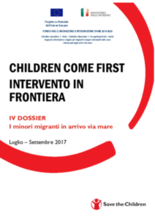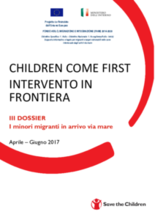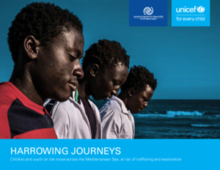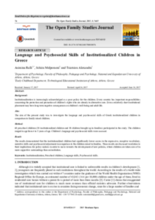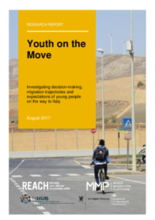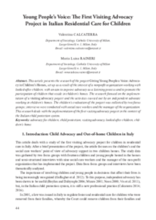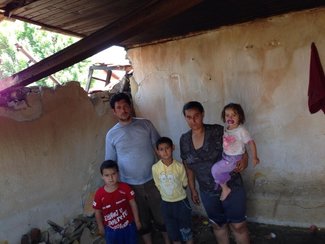

Displaying 311 - 320 of 545
As part of the "Children Come First: Intervention at the border" project, Save the Children Italy elaborates and disseminates, on a quarterly basis, a dossier containing quantitative and qualitative information (profiles) relating to migrant minors entering Italy. This dossier contains information relating to the period July-September 2017.
During the launch of Malta's public consultation on standards of adoption, the Minister of Family Affairs announced that adoptive families will benefit from up to €10,000 and be partially refunded for travel expenses.
This study investigated Portuguese adolescent adoptees' perceptions of their attachment relationships with their adopted parents compared to adolescents living with biological parents and adolescents living in residential care.
As part of the "Children Come First: Intervention at the border" project, Save the Children Italy elaborates and disseminates, on a quarterly basis, a dossier containing quantitative and qualitative information (profiles) relating to migrant minors entering Italy. This dossier contains information relating to the period April-June 2017.
This joint report from UNICEF and the International Organization for Migration (IOM) explores in detail survey data from the Central and Eastern Mediterranean Sea routes to Europe, focusing on adolescents and youth on the move from Africa and Asia.
This study investigated the language and psychosocial skills of pre-school aged Greek institutionalized children in comparison to Greek children of the same age raised in a family environment.
This report analyzes the relationship between poly-victimization and the internalizing and externalizing symptoms amongst 12-17 year old youth living in residential care centers in Spain.
In order to strengthen policymakers’ and humanitarian actors’ responses in countries of transit and destination, this study was designed to shed light on young people’s decision-making and preparedness levels, the mechanisms shaping their migration trajectories, and their expectations on the way to Europe.
This article presents the research of the project "Giving Young People a Voice: Advocacy in Children’s Homes," which evaluated the implementation of a visiting advocacy project and services provided by an independent advocate working in children's homes in Italy.
This study investigated how adoptive and prospective adoptive parents in Spain deal with signs of fraud and corruption within the intercountry adoption process, illuminating the dismissal of the systemic failures of intercountry adoption and the rights of birth families.

